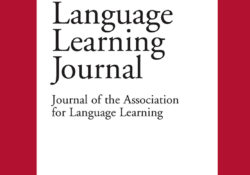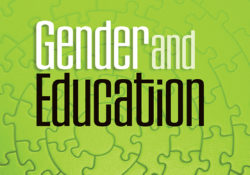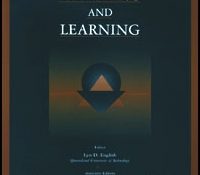tandfonline.com har udgivet en rapport under søgningen „Teacher Education Mathematics‟: ABSTRACT ABSTRACT The Netherlands are quite unique in that the Dutch have always learned various foreign languages. Until 1940, French was the most important foreign language. Between roughly 1870 and 1970, Dutch learners in grammar schools and higher secondary schools were even obliged to learn three foreign languages: French, German and English. Since 1970, however, English has become the first foreign language, and proficiency in French and German has declined. As for methodology, Dutch foreign language teaching/learning (FLT) has always taken a practical stand, in which the question ‘does it work?’ is paramount. This article provides an overview of the developments that have characterised Dutch FLT from approximately 1500 to the present day. Link til kilde
Like this:
Like Loading...
tandfonline.com har udgivet en rapport under søgningen „Teacher Education Mathematics‟: ABSTRACT ABSTRACT This study focuses on high school students’ profile choices and the choice for or against the Nature and Technology (NT) profile in the Netherlands. A mixed-methods approach is used to study cultural values that affect this choice. The quantitative part of the study shows that being female is negatively correlated with the choice for the NT-profile, irrespective of the grade average for mathematics, chemistry and physics. It further shows that students’ ethnic background does not have a significant effect on this choice. The qualitative part of the study reveals that students’ choice processes towards or away from NT can be categorised in three ideal types: the postmodern perfectionist, the pragmatic hedonist and the materialist maximalist. Gender differences appear… Continue Reading →
Like this:
Like Loading...
tandfonline.com har udgivet en rapport under søgningen „Teacher Education Mathematics‟: Abstract Abstract In this paper, I will discuss possible sources for Priestley’s norm of correctness in his grammar book, The Rudiments of English Grammar, from a socio-historical perspective. I will show that Priestley’s norms of correctness were informed by the usage of the well-educated middle class, the language of science, Robert Lowth’s grammar and the discourse community of eighteenth-century grammarians, and a contemporary canon of good and bad usage. Link til kilde
Like this:
Like Loading...
tandfonline.com har udgivet en rapport under søgningen „Teacher Education Mathematics‟: ABSTRACT ABSTRACT This article offers a reflection on the findings of three PhD studies, in the domains of, respectively, subtraction under 100, fractions, and algebra, which independently of each other showed that Dutch students‛ proficiency fell short of what might be expected of reform in mathematics education aiming at conceptual understanding. In all three cases, the disappointing results appeared to be caused by a deviation from the original intentions of the reform, resulting from the textbooks‛ focus on individual tasks. It is suggested that this “task propensity”, together with a lack of attention for more advanced conceptual mathematical goals, constitutes a general barrier for mathematics education reform. This observation transcends the realm of textbooks, since more advanced conceptual mathematical understandings… Continue Reading →
Like this:
Like Loading...



